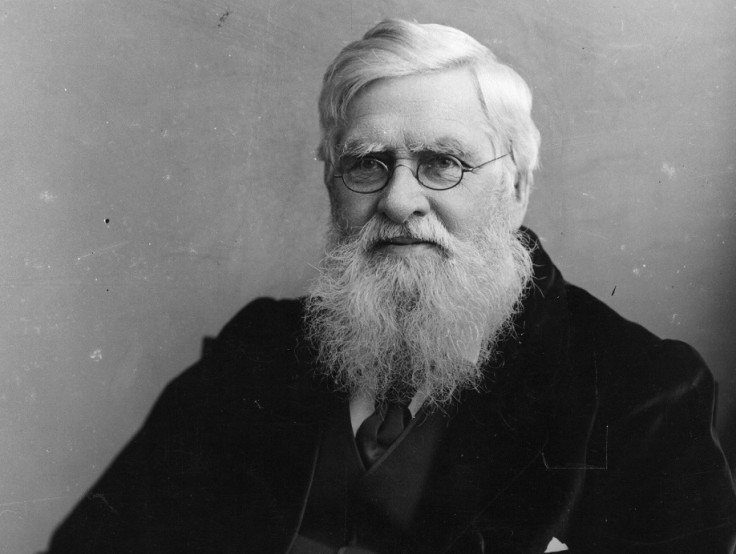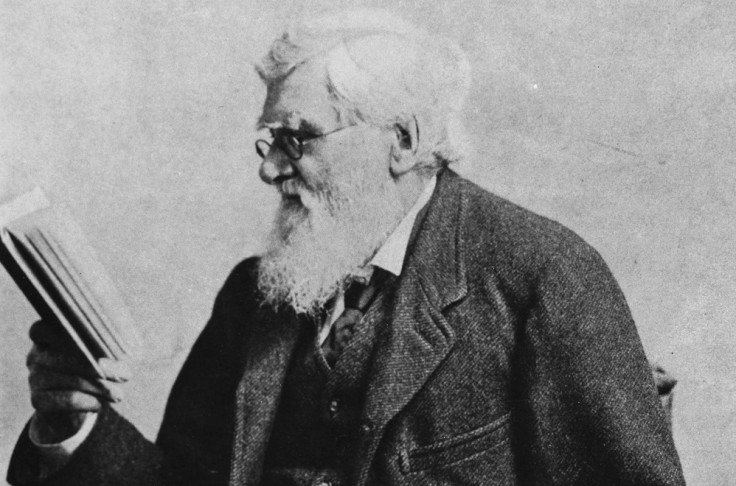Darwin Day 2015: Alfred Russel Wallace, the forgotten evolutionist overshadowed by Charles Darwin

An intrepid explorer and a brilliant naturalist, he was given the highest honour possible from a British monarch and on his death a century ago, obituaries praised him as the last of the great Victorians.
Alfred Russel Wallace was a man of many talents – an explorer, collector, geographer, anthropologist and a political commentator. He had the idea of evolution by natural selection independently of Charles Darwin, the ground-breaking theory that changed the way we understand the natural world and human life. Yet compared to his friend Darwin, he is no longer a household name.
Who was Wallace?
Born in the Welsh village of Llanbadoc in Monmouthshire, Wallace become one of the most famous people in the world by the end of the 19<sup>th century and was hailed for his achievements by the scientific elite. He is best known for conceiving the theory of evolution through natural selection and his paper on the topic was published with some of Darwin's writings in 1858. This led Darwin to publish his own ideas in On The Origin Of Species.
At the time of his death, he had authored 22 books and written more than 200 scientific papers – travelling to remote corners of the world in an era before inoculations and effective medicine. Wallace's fieldwork was extensive, first in the Amazon River basin and then in the Malay Archipelago. His 1869 book The Malay Archipelago is widely regarded as his best work.
He was the first to identify the faunal divide – now known as the Wallace Line – which separates the Indonesian archipelago into two parts: the east where the fauna is of Australasian origin, and the west where animals are of Asian descent.
Wallace was considered the 19<sup>th century's leading expert on the geographical distribution of animal species. Referred to by some as the "father of biogeography", he made other major contributions to the development of evolutionary theory, including the Wallace effect – or "reinforcement" - a hypothesis that posits natural selection can contribute to the reproductive isolation of incipient species by evolving barriers against hybridisation.
In addition to his scientific work, Wallace was a social activist – having been exposed to the radical political ideas of the Welsh social reformer Robert Owen and the British American revolutionary Thomas Paine as a teenager. He was openly critical of what he deemed to be an unjust social and economic system in 19<sup>th century Britain.

Why is Wallace less well-known than Darwin?
Throughout his life, Wallace suffered from financial difficulties. Unlike Darwin and others in the British scientific community, he had no family wealth to rely on when needed - and he struggled to earn a regular income. His travels were supported by the sale of specimens he collected, but he lost much of the money he made in unsuccessful investments in railways and mines.
To remain solvent, Wallace graded government exams, wrote various papers and was paid by Darwin and geologist Charles Lyell to help edit their work. Darwin was very aware of Wallace's financial difficulties and pushed for the government to give him a pension for his lifetime contributions to science. In 1881, Wallace was awarded a £200 annual pension, thanks to the efforts of Darwin, which helped stabilise his financial position.
According to some experts on both men, part of the reason why Wallace was forgotten was because he failed to promote his role in formulating the theory of evolution – unlike Darwin. His work appeared to pass credit onto his friend, including his 1889 book Darwinism: An Exposition Of The Theory Of Natural Selection With Some Of Its Applications.
Evolutionary theory lost favour at the end of the 19<sup>th century and when it regained popularity in the 1930s, Darwin's name was the one that stuck.
Bill Bailey wrote in the Radio Times in 2013, on the centenary of Wallace's death: "Wallace lived an amazing life. He was a courageous and deeply moral man who contributed hugely to our understanding of life on earth. Everyone with an interest in the natural world should know who he is. In fact, anyone with a sense of adventure should be inspired by his extraordinary travels and relentless curiosity.
"But he lacked the connections and status to impose himself on the world of science, and so his contributions to understanding evolution were overshadowed by Darwin, who wrote the 'bible' of evolution if you will, and this has endured."
© Copyright IBTimes 2025. All rights reserved.






















